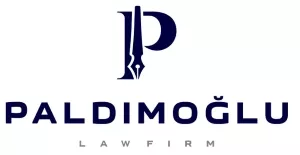The Regulation Amending the Regulation on the Activities for Vacation Rentals, known as the Airbnb Regulation, was published in the Official Gazette dated 30.06.2024 and entered into force. With this amendment, the difficulties experienced in obtaining Airbnb rental permits have been alleviated, and the application process has been made more flexible. In this article, we will examine the changes made to the regulation.
You may be interested: Airbnb Law of Turkey was Published in the Official Gazette
Changes in the Definition of Residence
With the amendment regulation, the definition of high-quality housing, i.e., residence, has been updated. Previously, high-quality housing was defined as "residential buildings that meet at least the housing conditions specified in the Planned Areas Zoning Regulation published in the Official Gazette dated 3/7/2017 and numbered 30113, and in places specified in Article 19 of the same Regulation; containing reception, security, and daily cleaning service areas, where health services, dry cleaning, laundry, transportation, food, and shopping services, as well as services such as gym and swimming pool, can be provided." With the amendment, it has been clarified to what extent these services need to be provided. Now, it is required that at least two of the services, including reception, security, and daily cleaning service areas, health services, dry cleaning, laundry, transportation, food, and shopping services, as well as gym and swimming pool services, must be provided. Previously, it was not clear how many of these services needed to be offered, which caused uncertainty about which properties could be classified as high-quality housing. It can be said that this change facilitates the designation of high-quality housing in complexes and eases the process of obtaining permits.
You may be interested: Airbnb Regulation Came Into Effect in Turkey 2024
Changes Related to Existing High-Quality Housing
With the amendment, a change has also been made in the transitional article 1, extending the previously determined period. In the initial version of the regulation, properties that were subject to vacation rentals according to the management plan shown in the declarations section of the condominium ownership book before 1/1/2024 were subject to the provisions related to high-quality housing without the requirement to be in places specified in Article 19 of the Planned Areas Zoning Regulation. With the amendment, this date has been extended to 31.12.2024.
Another change made concerns the locations and properties where these services are provided. In the previous version of the regulation, this condition applied to properties where all services including reception, security, daily cleaning service areas, dry cleaning, laundry, food, and shopping services, gym, and swimming pool services were provided. With the amendment, it has been stipulated that the provisions related to high-quality housing will apply to properties where reception, security, daily cleaning service areas, dry cleaning, laundry, food, and shopping services are provided and where gym and swimming pool services are offered on the same parcel. Thus, it has been seen that properties offering high-quality housing services on the same parcel, even if the gym and shopping services are in different blocks, are included in this article.
Changes in Permit Procedures
In the initial version of the regulation, it was mandatory to finalize application procedures within thirty days. With the amendment, these procedures will now be finalized within 60 days. The aim of this change can be said to be addressing the mismatch between the promised time and the actual evaluation period in practice.
The Airbnb implementation regulation stipulated that inspections would be conducted within thirty days from the issuance of the permit. With the amendment, the gap regarding how inspections would be conducted has been filled, and it has been determined that on-site inspections will be carried out. Accordingly, appointed officials will visit the permitted property to check whether it meets the specified qualifications.
Method to be Applied in Case of Deficiencies
With the regulation amendment, changes have been made regarding the steps to be followed in identifying deficiencies. According to the initial version of the regulation, an administrative fine was imposed on the permit holders of properties found not to meet the minimum qualifications during inspections conducted after the issuance of the permit, and they were given fifteen days to rectify the deficiencies. If the deficiencies were not corrected during a second inspection at the end of this period, the permit was canceled.
With the amendment, the approach of the administration has been softened. The new regulation specifies which deficiencies will result in a given time or a fine. Accordingly, if deficiencies are identified within the scope of subparagraphs (a), (b), (c), and (ç) of the first paragraph of Article 9 of the Regulation, the permit holder will be given fifteen days to rectify them. If the deficiencies are not corrected during the inspection at the end of this period, an administrative fine will be imposed, and another fifteen days will be given to correct the deficiencies. If the deficiencies are still not corrected during the second inspection at the end of this period, the permit will be canceled. As can be seen, previously, one period was given and a fine was imposed simultaneously. However, with the amendment, first a period is given, then if the deficiencies are not corrected, another period is given along with a fine. Thus, while previously permit holders were given two chances to rectify deficiencies, the new regulation increases this number to three.
The content of this article is intended to provide a general guide to the subject matter. Specialist advice should be sought about your specific circumstances.



